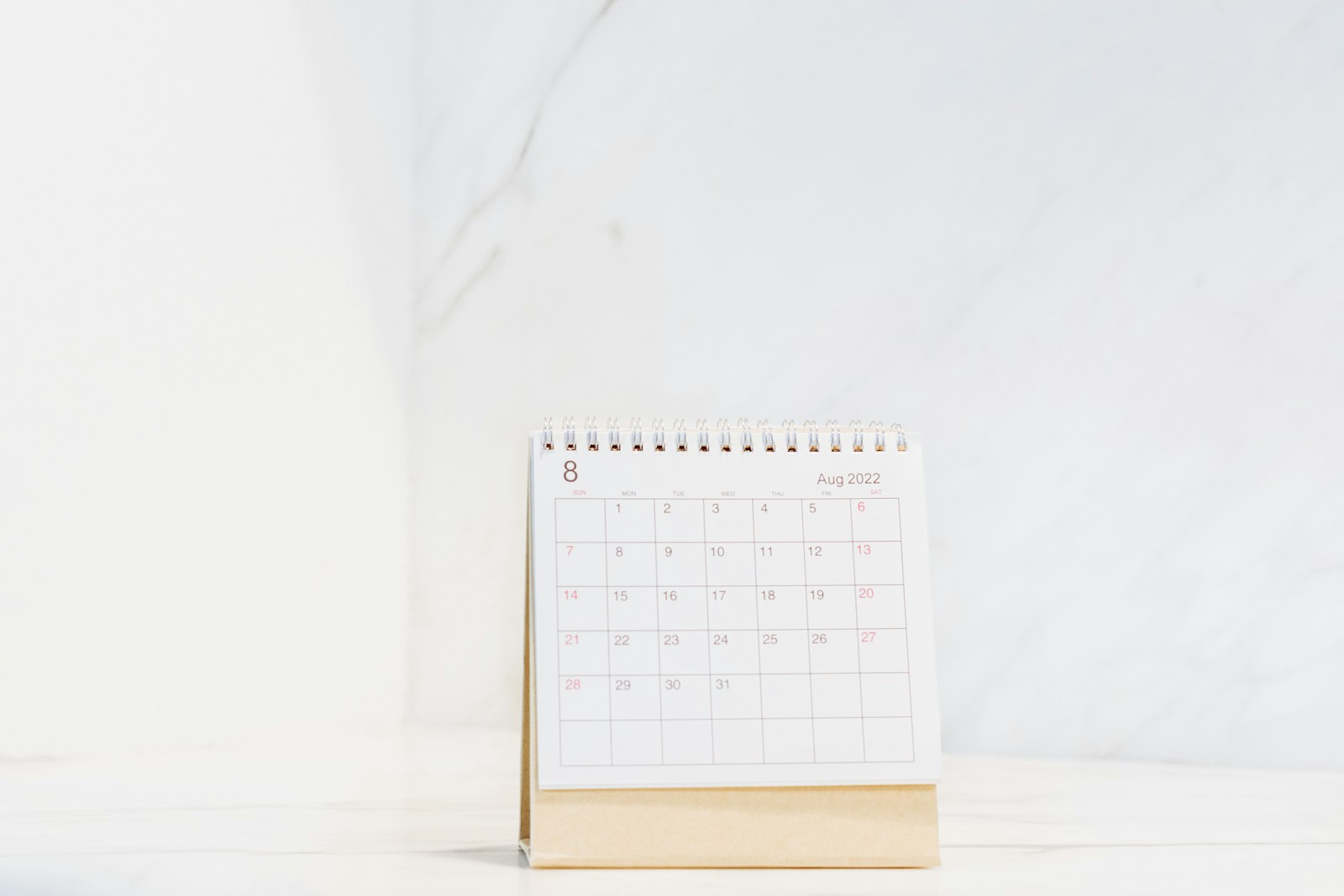
calendario

calendar
In Spanish, 'calendario' is used in much the same way as 'calendar' in English. It's a system of determining the beginning, length, and sequence of years and their subdivisions, such as weeks and months. It's used in everyday language and contexts, from scheduling appointments to planning events.
Example sentences using: calendario
El calendario en la pared está desactualizado.

The calendar on the wall is outdated.
This sentence means that the calendar hanging on the wall is either showing the wrong month or year, or isn't current.
Voy a marcar la fecha en el calendario.

I'm going to mark the date on the calendar.
This phrase means that the speaker will be noting down a specific date on their calendar for future reference.
Deberías revisar el calendario antes de planear nuestro viaje.

You should check the calendar before planning our trip.
In this sentence, the speaker is suggesting that the person should consult a calendar before making plans for a trip.
Mi calendario está lleno de citas para esta semana.

My calendar is full of appointments this week.
This sentence indicates that the speaker has a lot of appointments scheduled for the week on their calendar.
Compré un nuevo calendario para el próximo año.

I bought a new calendar for the next year.
Here, the speaker is saying that they purchased a new calendar in preparation for the following year.
El calendario de eventos está en la página web de la universidad.

The event calendar is on the university's website.
This sentence means that you can find the schedule of events on the university's website.
Necesitamos un calendario para organizar nuestras tareas.

We need a calendar to organize our tasks.
This sentence means that a calendar is needed to help arrange and keep track of tasks.
Los niños del colegio hicieron un calendario como proyecto.

The school children made a calendar as a project.
This phrase states that the school children created or designed a calendar as part of their school work.
Mi abuela siempre tiene un calendario de bolsillo.

My grandmother always has a pocket calendar.
The speaker is saying that his or her grandmother always carries a small, portable calendar.
Según el calendario, hoy es día feriado.

According to the calendar, today is a holiday.
The speaker is using the calendar information to mention that today is a holiday.